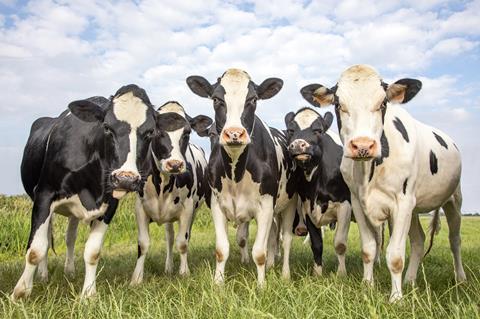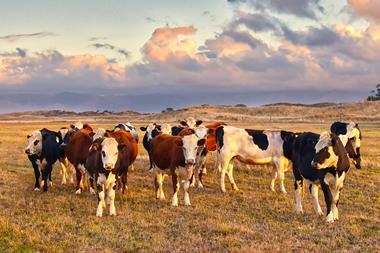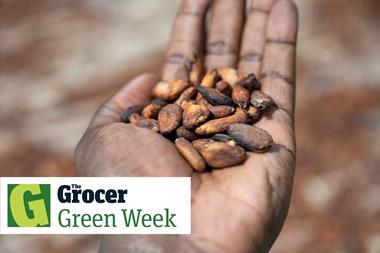
At this year’s New York Climate Week, agrifood giants showcased their climate credentials before policymakers, investors, and campaigners, this time rallying around the buzzword ‘regenerative agriculture’. Having morphed into a catch-all slogan for the industry, regenerative agriculture represents a convenient badge of climate action that distracts from our most urgent challenge: methane.
With 2024 confirmed as the hottest year on record, Europe is reeling from droughts, heatwaves, and wildfires that are devastating ecosystems and supply chains. For farmers, this presents an existential threat.
The methane problem
Agriculture depends on climate stability. While crops need rainfall and moderate temperatures, livestock require steady grazing conditions – yet animal agriculture is the largest man-made source of methane, responsible for 32% of global emissions and up to 50% of beef and dairy’s footprint.
Methane lingers for less time in the atmosphere then CO2, but is around 80 times more potent. Cutting methane could therefore prevent nearly 0.3°C of warming by 2040, making it one of the fastest and most effective levers to slow the climate crisis.
Despite this, methane was barely mentioned at this year’s Regenerative Agriculture Summit. While famers were largely absent from discussions, hollow buzzwords such as ‘resilience’, ‘anti-fragility’ and ‘farmer first’ took centre stage, with agrifood conglomerates pedalling regenerative agriculture as a path to net zero without the evidence to back it up.
Many big meat and dairy companies have jumped on the bandwagon of regerative agriculture.
In our 2024 report The New Merchants of Doubt, we analysed 22 major agrifood companies – including Nestlé – and found that over half promote regenerative agriculture in their sustainability reports. Indeed, while the term was mentioned 269 times across the sector, methane was mentioned less than half that (127 times).
Although regenerative agriculture appears action-orientated and future-focused, without an established definition it is simply a blanket phrase. This means companies can over-emphasise certain practices while ignoring the harder conversations around livestock numbers, reduction of nitrogen fertilisers or methane emissions.
Big claims, little action
After being challenged by investors over the lack of definition, the industry created its own framework. Named Regenerating Together, it was developed through the Sustainable Agriculture Initiative Platform and supported by 33 corporate food giants including Nestlé, Cargill and Dairy Farmers of America.
In reality, it prioritises profitability and yield, neglects methane emissions, and maintains the industrial status quo.
Nestlé has previously claimed this ‘initiative’ will “aid the global transition toward regenerative agriculture”. Yet there is no certainty this will translate into real emissions reductions.
Even more concerning, Nestlé still has no target to cut methane – despite methane reductions being scientifically proven as the fastest and most effective way to slow global warming. And while methane cuts remain sidelined, the company continues to avoid setting a clear definition for what ‘regenerative’ means in practice.
While regenerative agriculture continues to dominate corporate slogans without proof of action, agrifood conglomerates will continue to stall essential climate progress. One of the world’s largest food companies, Nestlé claims it is committed to climate leadership yet continues to put all its eggs in the basket of this vaguely defined and uncertain climate solution, while ignoring repeated calls to set a bold methane reduction target.
In the wake of Climate Week, the question for investors, policymakers, and the public is clear: will companies like Nestlé move beyond slogans, to finally grab the climate crisis by the horns?
Lily Roberts, campaign advisor at Changing Markets Foundation



















1 Readers' comment